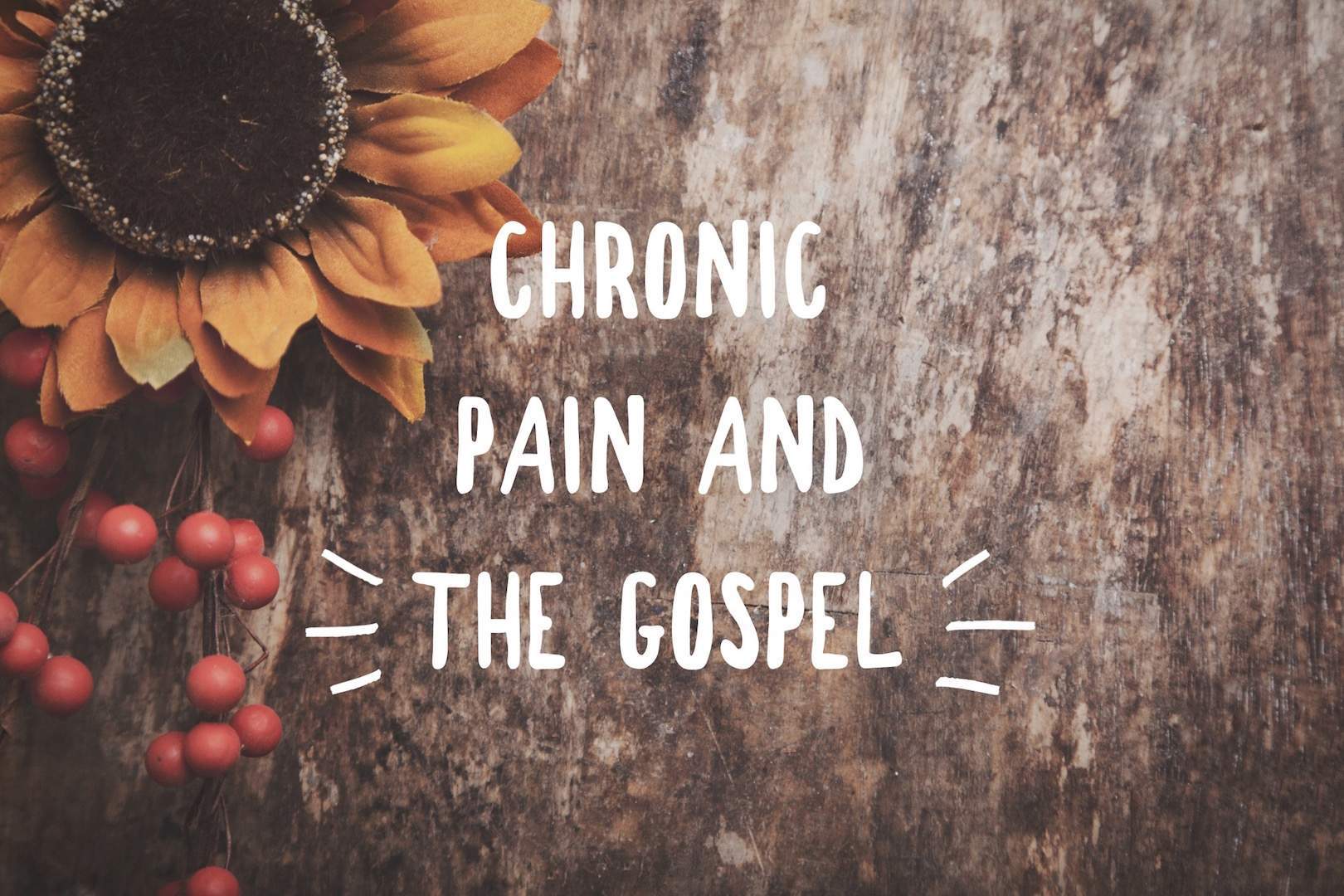
Chronic Pain and the Gospel
Definition of Chronic Pain: An ever-present experience of distressing and sometimes debilitating physical pain that invades one’s body and severely impacts every single aspect of that person’s life (my definition).
When I was asked to write about chronic pain for our Redeemer blog, I think I may have involuntarily rolled my eyes. My first thought was, “who in the world wants to hear about that?” I wanted to dismiss it completely. But the truth is, my initial dismissal was because I knew it would be so very painful to write about.
The words make me cringe. To me they sound like my old aunt Martha whining about her ailments. To me it sounds like weakness, and it sounds “needy” and “wimpy.” It sounds like something I never wanted to be… that person. It sounds like shame.
Our culture despises weakness. In our culture, we have been indoctrinated with “you can do anything if you just set your mind to it!” But sometimes, as in the case with chronic pain, your body doesn’t cooperate, and you have no choice in the matter. In my case, the source of the pain is an illness, an auto-immune disease called Rheumatoid Disease. It delivers quite a nasty punch of constant pain and inflammation in one’s joints, until the joints are destroyed. It attacks major organs such as your heart, lungs, kidneys, liver, skin, and eyes. It is just one of over 100 diseases that are characterized by your own immune system turning in on itself as an aggressive invader. What is meant to protect your body and health instead begins to destroy it. There is not a cure. It is painful—physically, mentally, emotionally, and spiritually.
When we see someone in a cast or in a wheelchair, we know that person has somehow been harmed; their body is “broken” in some way. It is obvious that they probably have been, or are currently experiencing some kind of pain. However, for many people living with chronic pain, it is invisible to all but the sufferer. You will probably not be able to tell. In fact, people who suffer with chronic pain often do all they can to ensure it is not seen.
Chronic pain creates a very lonely place in one’s soul. It brings grief and loss. Friendships fall away because you simply don’t have the energy to maintain them. There is grief over losing the opportunity to live my life in a different way—as a healthy person; as one whose attention is not captivated by the screaming inside my body, or as one who might have the energy to even engage another person in simple conversation.
There is another aspect of chronic pain that serves as a double gut-punch. It is often accompanied by an extreme fatigue. The kind of tiredness that makes it nearly impossible to do “normal” things like taking a short walk or cooking a meal for one’s family. Even going to coffee with a friend may prove beyond your capability. Never mind the things that we all must do daily just to keep life going. These things seem insurmountable at times.
There is shame in needing pain medication to function. This is especially true in our current environment, where the often talked about “opioid crisis” in our country can result in those who are using opioids to manage chronic pain being spoken of collectively with those who use the drugs recreationally and for sordid gain. For example, I have to take regular urine tests to prove I am taking my medication as prescribed. Yes, it feels shameful.
How Will I Be Defined?
How I interpret and respond to this experience of chronic pain, and all that comes with it is critical. I cannot let it speak louder to me than the words of scripture. I cannot let it define who I am—only Jesus can do that, and His word is clear about who I am in Christ. I cannot let pain dictate to me what is true about God and His character—He has revealed His goodness and mercy to me again and again. I must turn my gaze back to Jesus, who has paid my ransom. I am redeemed. Already. I would not be more loved were I to possess better health.
He has called me to serve Him and to do some things for his kingdom. These things pull me outside of myself for a time, and this is His mercy toward me. I confess that most of the time I grumble to Him about doing what He has invited me to do, and most of the time it feels like what He asks require more of me than I have. But time and time again, He proves to me that His grace is sufficient for me. As well, His grace is there for me when I find that it is physically impossible to accomplish what I desire to accomplish. It’s there for me when I hear the lies of the enemy of my soul, trying to remind me of how flawed I am.
He has allowed this suffering to be present in my life. Through it, He is working something in me. I rely on Him in a way now, that I otherwise would not. He knows me. He made me. He is with me, always—no matter what I may face. He is with you too.
